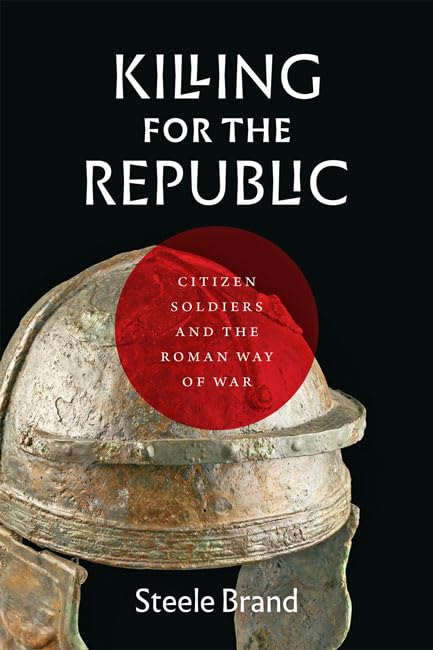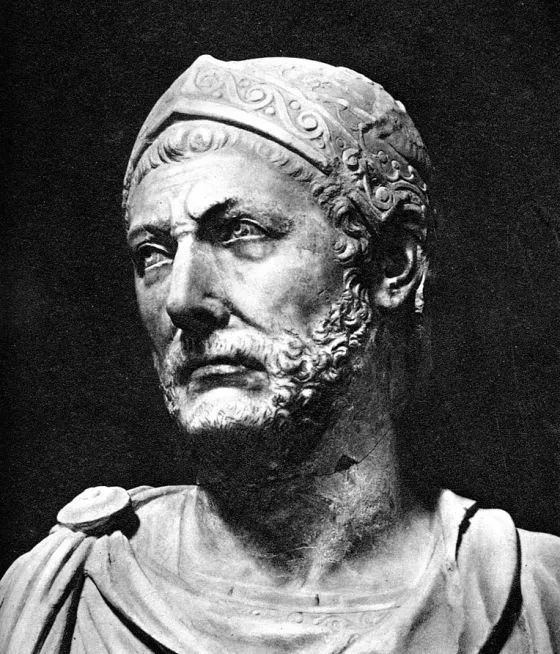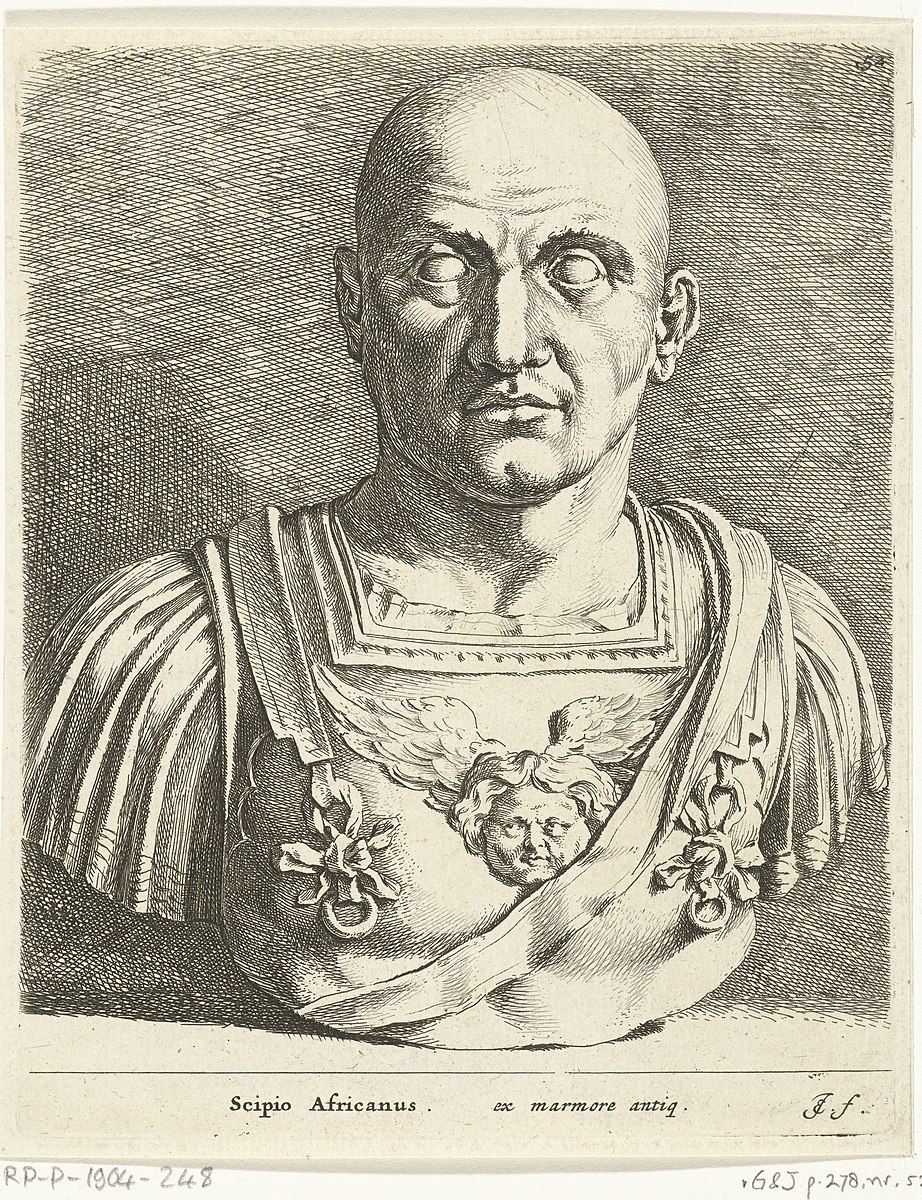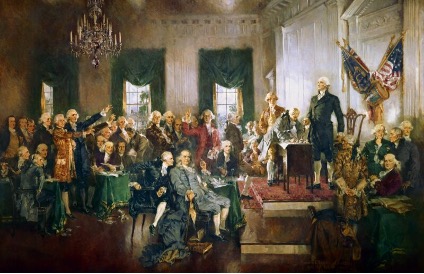
An interview with Steele Brand
Elliott Drago sat down with JMC Miller Fellow Steele Brand to discuss the Roman republic, constitutional systems, and generational genius. Dr. Brand is the Director of Statesmanship Initiative & Professor of History at Cairn University and a Scholar in Residence at the John Jay Institute.
A constitutional system that routinely creates exemplary citizens and commanders
ED: What motivated you to write Killing for the Republic?
SB: One of the surest guides to political and strategic wisdom is the study of history. I believe republican government—meaning a constitutional system of checks and balances and a cultural commitment to the division of sovereignty between the one, the few, and the many—is the most just form of government regardless of time and place. I wanted to understand how republics have historically fought wars. Ancient republics tended to field citizen armies, and the most successful of these was the Roman Republic.
Rome shifted from a monarchy to a republic in the late 6th century at a time when the Mediterranean was a multipolar anarchy: a cutthroat world where every rival city-state, kingdom, or federation was trying to conquer, dominate, or destroy its neighbors. In one of history’s surprises, this small upstart republic beat all of these powers, many of which fielded far more impressive armies comprised of warrior classes or mercenaries. Yet Rome taught farmers to be citizens and then to defend their citizenship on the battlefield as part-timers. I wanted to understand the kind of culture that created such men and habituated them to make such sacrifices.
ED: Explain how Rome’s citizen-soldiers cultivated their understanding of republicanism.

SB: The citizen-soldiers themselves did not cultivate it. Rather, their exemplary civic republicanism was cultivated by their culture. This began in the little republic of the family. Roman fathers and mothers were expected to habituate their children to hard work on the farm, an active life of citizenship, and the defense of the republic. Roman parents were known and feared as intense disciplinarians who held the power of life and death over disobedient children. However, this emerged out of the serious nature of Roman family life, where fathers and mothers took on the hard life of farming a small plot of land in a ruthless land. They expected their children to be obedient, but each day they also loved and reared their children, teaching them the hardy republican virtues.
Plutarch provides a description of how one of Rome’s statesmen, Cato the Elder, raised his son. Although Greek tutors were available, he insisted on teaching his son to read, to know Roman law and history, and to understand its republican traditions. He also taught his son how to be a good citizen-soldier. Father and son dedicated hours to hiking and enduring extreme temperatures, swimming in rough water, throwing javelins, boxing, riding horses, and maneuvering as a legionary with the famous Roman shield and gladius. The historian Polybius described how this kind of physical and cultural training was ubiquitous. Rome’s citizens applied these lessons from the hearth on a larger scale in their communities and in the republic as a whole.
Sturdy, self-reliant, and aware of their privileges under Roman law, they were also loyal to Rome’s traditions and heartily embraced the duties of political participation and military service.
ED: Which Romans stand out to you as emblematic republicans?
SB: Tradition held that the Greek martial republics were founded by one man like a Lycurgus of Sparta or a Solon of Athens. Rome was different, as Cicero explained: “our own commonwealth was based upon the genius, not of one man, but of many; it was founded, not in one generation, but in a long period of several centuries and many ages of men.” The Roman historian Livy made the same point throughout his history of Rome and most poignantly in his famous digression about what would have happened if Alexander had invaded Italy. In this first alternate history ever written, he argued that Alexander would have been defeated by the Roman Republic because regardless of how many battles he won, Rome would keep fielding armies of citizens and allies from its large manpower base led by an unending supply of good citizen-commanders. This would go on like groundhog day until Alexander was finally killed in battle or forced to retreat.
Butchering the republic
SB: I think Cicero and Livy were right, and I’ll offer another, particularly potent slice of Roman exemplarity from the 2nd Punic War. When Hannibal swooped down into Italy he encountered three commanders whose eagerness to fight was not matched by a corresponding capacity to win. Herein lay the inherent military weakness of Rome’s republican system. Sometimes uninspired or incompetent commanders took the field and blundered into defeat. In the hands of a brilliant commander like Hannibal, armies led by such men created a butcher’s paradise, which is why Rome saw the destruction of fourteen legions and allied counterparts (each legion had approximately 5,000 citizen-soldiers, with matching numbers of allied units) in merely three years. By the end of the war, a third of Italy’s male population had been wiped out.

SB: So with such losses, why didn’t Hannibal win? The first answer is that exemplarity permeated the Roman constitutional order, demanding that young men serve their republic, killing and dying for it. These men and their family’s sacrifices showcased the ancient world’s exemplary citizens. They were also eventually led by exemplary commanders. In the midst of Rome’s military catastrophe one statesman, Fabius Maximus, pioneered an ingenious strategy of attrition. He would stalk Hannibal throughout Italy but only offer battle on extremely favorable terms. Fabius was initially maligned as a coward and a dunce for not taking the fight to Hannibal, but after the last devastating defeat that saw the death of 70,000 Romans, Rome’s citizens backed Fabius’ plan. Hannibal knew better and feared Fabius from the moment he took the field. Hannibal quickly realized that in Fabius he had met his strategic match, which is why he did not fight another decisive battle in Italy for the rest of the war. The one thing Hannibal needed to win was decisive battles, and Fabius kept these out of reach.

But Rome was a republic, so they didn’t have just have one wise commander. Other men emerged. Marcellus captured Syracuse in this now Mediterranean world war and then returned to take a cautious offensive against Hannibal at strategic locations. Two old political enemies, Claudius Nero and Marcus Livius, joined forces to search out and destroy reinforcements led by Hannibal’s brother. They sent his brother’s severed head to Hannibal as a token of Roman resolve. Dogged old senators like Fulvius Flaccus ruthlessly crushed traitorous allies who had violated their treaties and sided with Carthage. Meanwhile, another Roman aristocrat, the young and talented Publius Scipio took the fight into Hannibal’s industrial base in Spain, conquering the area for the Roman Republic. Under the command of earlier generals, he had participated in three of Rome’s defeats, yet each time he closely observed Hannibal’s style and skill. He improved upon Hannibal’s tactics in Spain and then finally forced Hannibal’s recall to North Africa. Scipio finished the war by defeating Hannibal in the war’s final climactic battle.
Roman exemplarity was thus not merely in such citizens and commanders, but in a constitutional system that routinely created them. This is the lesson Rome offers republics of any age. Rome habituated service and sacrifice in its leaders and its citizens. Modern commercial republics can create unprecedented prosperity and personal liberty, but they must be careful not to encourage selfishness and civic apathy. Republics will succumb to internal factionalism or foreign domination if they are not bound together by civic virtue and a common sense of duty. Ordered republics stem from citizens with ordered souls.
A sign of American disorder is the failed recruiting goals over the last several years in America’s military branches. Our youngest citizens—and especially our young men—no longer wish to serve and sacrifice. This is but one symptom of a republic suffering from a debilitating disease.
ED: Many of the American founders relished reading and discussing ancient history. What was it about the ancients that intrigued them so much?

SB: The American framers believed that wisdom could be found in human experience, and the surest way to create a republic was to study the history of republics and apply these insights. Their English heritage already taught them to value constitutionalism, the rule of law, and the great texts of the Western tradition. They drew from all of these when they contemplated how to craft a new form of government. Anyone who sifts through their letters, sermons, pamphlets, and recorded debates, will find abundant references to the republics of history, from the Hebraic Republic and the martial republics of the classical world to the Swiss Confederation and the Dutch Republic. Election sermons and the writings of clergy tended to focus on the republican lessons of the Old Testament, but the first leading statesmen also found the keenest insights from classical texts.
As a young man Washington imbibed the biographies of Plutarch, endeavoring to become as great as the men he read about. His success is evidenced by the parallels his contemporaries made to Rome’s best republican statesmen, calling him Camillus, Fabius, and Cincinnatus. John Adams wrote a historical tome that defended American constitutionalism by comparing it to all the republics of history. In his mind, the best ancient form was found in the Roman Republic and the best republican thinker of all time was its keenest observer, Polybius. The Federalist Papers are likewise dripping with references to classical institutions, and they defended a Constitution that based much of its structure—collegiality, term limits, the senate, a bicameral legislature, checks and balances, a blending of monarchy, democracy, and aristocracy, etc.—on the constitution of Rome.
An aura of unprecedented generational genius surrounded the founding of our Republic, inspired by men with a daring ambition to make something new in the world, but this was tempered by the intellectual humility to let the experiences and heroes of history guide them in its creation.
ED: Tell us about your next project.
SB: I continue to explore republican statesmanship and command. I just completed a manuscript on statesmanship after the fall of the Roman Republic. The book tells the story of how Jesus of Nazareth and his followers reshaped Greco-Roman conceptions of military leadership in light of the theological virtues. The book then portrays Christian statesmanship by narrating the lives of several famous Christians from late antiquity. It compares the first Christian emperor Constantine the Great with the bishop Nicholas of Myra (the St. Nicholas of Christmastime), examines the founder-statesmen Martin of Tours and Patrick of Ireland, and then the Merovingian queen Radegund of Poitiers. The book shows how Christian statesmen were expected to exhibit both the classical and Christian virtues as they pursued the common good. They served in the kingdoms of men while never losing sight of the Kingdom of God. As Christians themselves understood it, good Christians would not always make good statesmen, but the best statesmen would be Christians because they understood the limits of human power and the true nature of goodness and justice.
Elliott Drago serves as the JMC’s Resident Historian and Editorial Manager. He is a historian of American history and the author of Street Diplomacy: The Politics of Slavery and Freedom in Philadelphia, 1820-1850 (Johns-Hopkins University Press, 2022).
